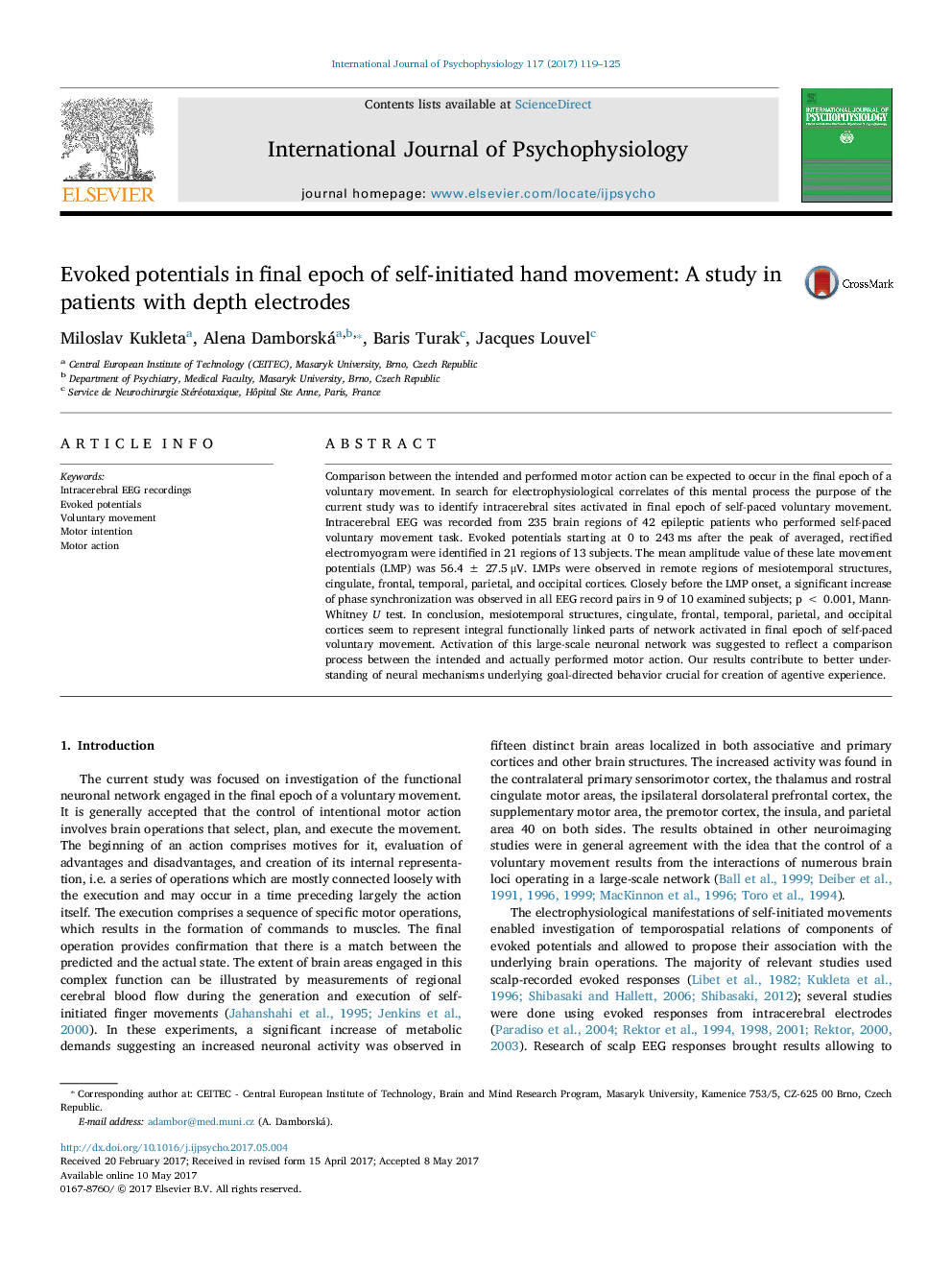ترجمه فارسی عنوان مقاله
پتانسیل های تحریک شده در دوره نهایی جنبش دست خودآموز: مطالعه در بیماران مبتلا به الکترودهای عمقی
عنوان انگلیسی
Evoked potentials in final epoch of self-initiated hand movement: A study in patients with depth electrodes
| کد مقاله | سال انتشار | تعداد صفحات مقاله انگلیسی |
|---|---|---|
| 131980 | 2017 | 7 صفحه PDF |
منبع

Publisher : Elsevier - Science Direct (الزویر - ساینس دایرکت)
Journal : International Journal of Psychophysiology, Volume 117, July 2017, Pages 119-125

